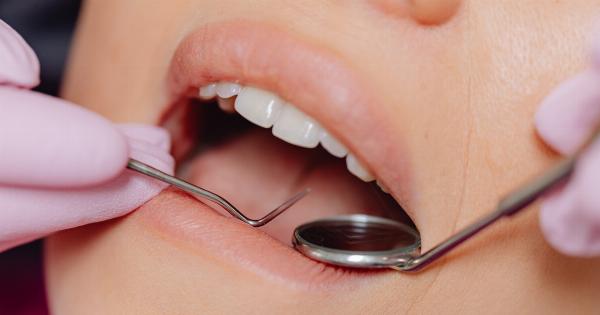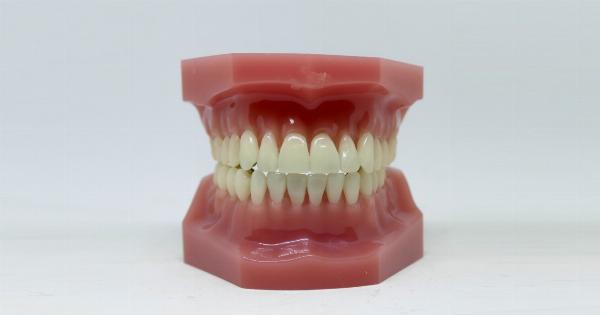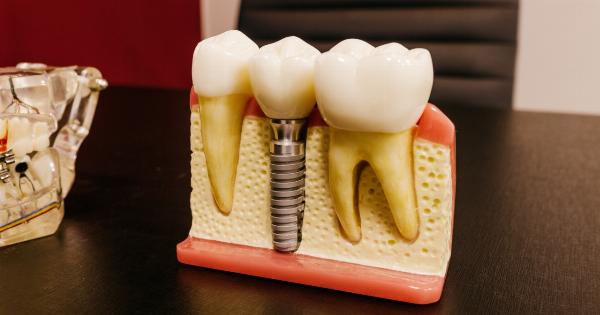Tooth sensitivity can be incredibly painful and annoying, making it difficult to eat or drink the things you enjoy.
While most people think that the main cause of sensitivity is cavities or gum disease, there are actually a number of surprising things that can cause or worsen tooth sensitivity. Here are five unexpected causes of tooth sensitivity that you might not have considered:.
1. Overbrushing
You might think that brushing your teeth more often or more vigorously will keep your teeth cleaner and healthier. However, overbrushing can actually wear down your tooth enamel and cause sensitivity.
When you brush too hard or use a toothbrush with tough bristles, you can wear away the protective layer of your teeth and expose the dentin underneath. This can lead to pain and sensitivity in your teeth, especially when exposed to hot or cold temperatures.
2. Teeth Whitening
Whitening your teeth can be a great way to improve your smile and boost your confidence. However, many people don’t realize that teeth whitening can also cause sensitivity.
The chemicals used in teeth whitening products can penetrate your tooth enamel and irritate the nerves inside your teeth. This can result in pain or discomfort, especially when you eat or drink something hot or cold.
3. Acidic Foods and Drinks
Acidic foods and drinks, such as citrus fruits, tomatoes, and soda, can erode your tooth enamel over time. When your enamel is worn down, the underlying dentin is exposed, which can cause sensitivity.
If you consume a lot of acidic foods and drinks, it’s important to rinse your mouth with water afterwards to help neutralize the acid and protect your teeth.
4. Grinding Your Teeth
Grinding your teeth, also known as bruxism, can wear down your tooth enamel and cause sensitivity. Many people grind their teeth at night while they’re sleeping, and may not even realize they’re doing it.
If you wake up with sore jaw muscles or notice that your teeth are becoming flattened or chipped, you may be grinding your teeth. A dentist can help you find the right treatment to prevent further damage and reduce sensitivity.
5. Sinus Infections
Believe it or not, sinus infections can also cause tooth sensitivity. When you have a sinus infection, your sinuses become inflamed and can press on the nerves in your upper teeth.
This can cause pain and sensitivity in your teeth, even though the problem isn’t actually with your teeth themselves. If you have chronic sinus infections and dental sensitivity, talk to your doctor about possible treatments.
Conclusion
While cavities and gum disease are the most well-known causes of tooth sensitivity, there are a number of other factors that can contribute to or worsen tooth sensitivity.
By taking steps to protect your tooth enamel and getting treatment for underlying conditions, you can reduce sensitivity and enjoy your favorite foods and drinks once again.




























